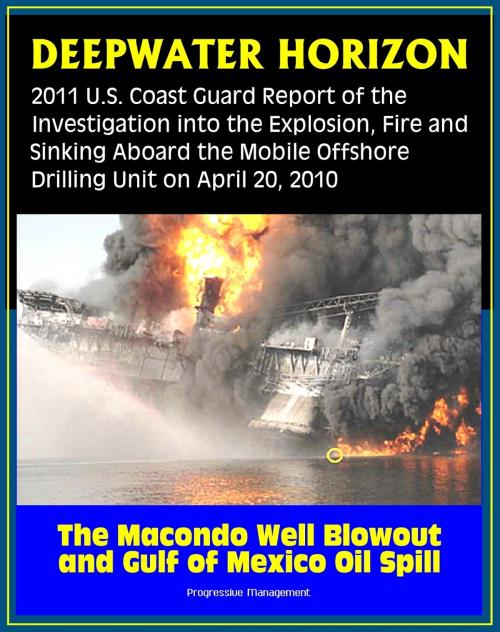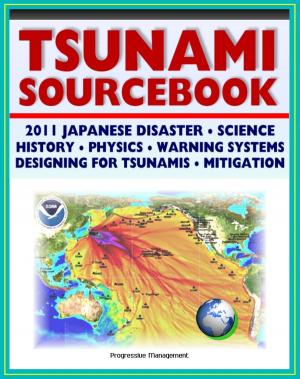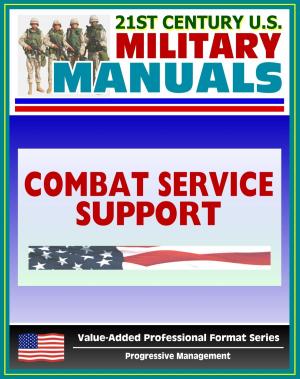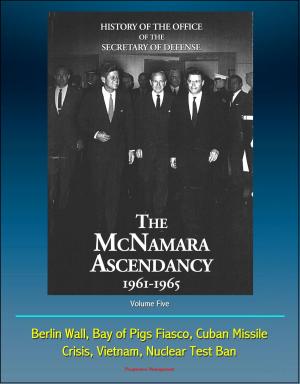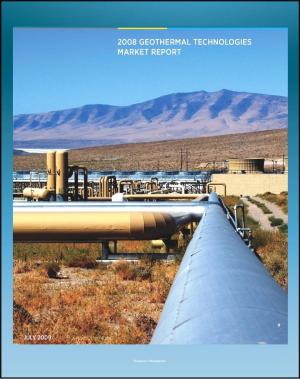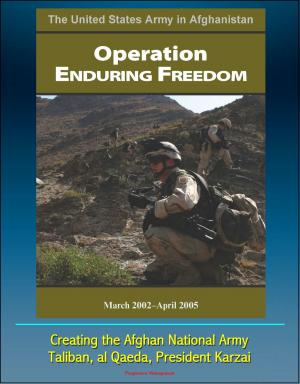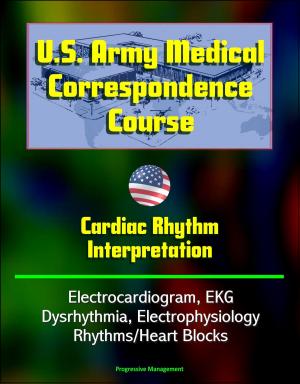Deepwater Horizon Gulf of Mexico Oil Spill: 2011 U.S. Coast Guard Report of the Investigation into the Explosion, Fire, and Sinking aboard the Mobile Offshore Drilling Unit (April 20, 2010)
Nonfiction, Social & Cultural Studies, Political Science, Government, Public Policy| Author: | Progressive Management | ISBN: | 9781458086662 |
| Publisher: | Progressive Management | Publication: | April 25, 2011 |
| Imprint: | Smashwords Edition | Language: | English |
| Author: | Progressive Management |
| ISBN: | 9781458086662 |
| Publisher: | Progressive Management |
| Publication: | April 25, 2011 |
| Imprint: | Smashwords Edition |
| Language: | English |
This long-awaited report by the U.S. Coast Guard provides authoritative, official findings on the investigation into the circumstances surrounding the explosion, fire, sinking and loss of eleven crew members aboard the mobile offshore drilling unit Deepwater Horizon in the Gulf of Mexico on April 20, 2010.
Contents include: Prologue, Executive Summary, Chapter 1 Explosion, Chapter 2 Fire, Chapter 3 Evacuation / Search and Rescue, Chapter 4 Flooding and Sinking, Chapter 5 Safety Systems (Personnel and Process), Chapter 6 Summary of Conclusions, Chapter 7 Safety Recommendations, Chapter 8 Administrative Recommendations.
The Joint Investigation Team (JIT) comprised of members from the U.S. Coast Guard and Bureau of Ocean Energy Management, Regulation and Enforcement (BOEMRE) examined five aspects of this disaster relating to areas of responsibility of the U.S. Coast Guard: the explosions, the fire, the evacuation, the flooding and sinking of the MODU, and the safety systems of DEEPWATER HORIZON and its owner-operator, Transocean. Although the events leading to the sinking of DEEPWATER HORIZON were set into motion by the failure to prevent a well blowout, the investigation revealed numerous systems deficiencies, and acts and omissions by Transocean and its DEEPWATER HORIZON crew, that had an adverse impact on the ability to prevent or limit the magnitude of the disaster. These included poor maintenance of electrical equipment that may have ignited the explosion, bypassing of gas alarms and automatic shutdown systems that could prevent an explosion, and lack of training of personnel on when and how to shutdown engines and disconnect the MODU from the well to avoid a gas explosion and mitigate the damage from an explosion and fire. These deficiencies indicate that Transocean’s failure to have an effective safety management system and instill a culture that emphasizes and ensures safety contributed to this disaster.
This investigation also revealed that the oversight and regulation of DEEPWATER HORIZON by its flag state, the Republic of the Marshall Islands (RMI), was ineffective in preventing this casualty. By delegating all of its inspection activities to “recognized organizations,” without itself conducting on board oversight surveys, the RMI effectively abdicated its vessel inspection responsibilities. In turn, this failure illustrates the need to strengthen the system of U.S. Coast Guard oversight of foreign-flagged MODUs, which as currently constructed is too limited to effectively ensure the safety of such vessels.
This report covers the areas under the cognizance of the U.S. Coast Guard investigated by the Joint USCG/BOEMRE Investigation Team (JIT). It includes USCG JIT recommendations to enhance the safety and effective oversight of foreign-flagged MODUs operating on the U.S. OCS. Many of these recommendations are for the Commandant of the Coast Guard to work with the International Maritime Organization (IMO) to amend its MODU Code, which is intended to provide guidance to flag state administrations in promulgating their own regulations.
This is a privately authored news service and educational publication of Progressive Management. Our e-books put knowledge at your fingertips, and an expert in your pocket!
This long-awaited report by the U.S. Coast Guard provides authoritative, official findings on the investigation into the circumstances surrounding the explosion, fire, sinking and loss of eleven crew members aboard the mobile offshore drilling unit Deepwater Horizon in the Gulf of Mexico on April 20, 2010.
Contents include: Prologue, Executive Summary, Chapter 1 Explosion, Chapter 2 Fire, Chapter 3 Evacuation / Search and Rescue, Chapter 4 Flooding and Sinking, Chapter 5 Safety Systems (Personnel and Process), Chapter 6 Summary of Conclusions, Chapter 7 Safety Recommendations, Chapter 8 Administrative Recommendations.
The Joint Investigation Team (JIT) comprised of members from the U.S. Coast Guard and Bureau of Ocean Energy Management, Regulation and Enforcement (BOEMRE) examined five aspects of this disaster relating to areas of responsibility of the U.S. Coast Guard: the explosions, the fire, the evacuation, the flooding and sinking of the MODU, and the safety systems of DEEPWATER HORIZON and its owner-operator, Transocean. Although the events leading to the sinking of DEEPWATER HORIZON were set into motion by the failure to prevent a well blowout, the investigation revealed numerous systems deficiencies, and acts and omissions by Transocean and its DEEPWATER HORIZON crew, that had an adverse impact on the ability to prevent or limit the magnitude of the disaster. These included poor maintenance of electrical equipment that may have ignited the explosion, bypassing of gas alarms and automatic shutdown systems that could prevent an explosion, and lack of training of personnel on when and how to shutdown engines and disconnect the MODU from the well to avoid a gas explosion and mitigate the damage from an explosion and fire. These deficiencies indicate that Transocean’s failure to have an effective safety management system and instill a culture that emphasizes and ensures safety contributed to this disaster.
This investigation also revealed that the oversight and regulation of DEEPWATER HORIZON by its flag state, the Republic of the Marshall Islands (RMI), was ineffective in preventing this casualty. By delegating all of its inspection activities to “recognized organizations,” without itself conducting on board oversight surveys, the RMI effectively abdicated its vessel inspection responsibilities. In turn, this failure illustrates the need to strengthen the system of U.S. Coast Guard oversight of foreign-flagged MODUs, which as currently constructed is too limited to effectively ensure the safety of such vessels.
This report covers the areas under the cognizance of the U.S. Coast Guard investigated by the Joint USCG/BOEMRE Investigation Team (JIT). It includes USCG JIT recommendations to enhance the safety and effective oversight of foreign-flagged MODUs operating on the U.S. OCS. Many of these recommendations are for the Commandant of the Coast Guard to work with the International Maritime Organization (IMO) to amend its MODU Code, which is intended to provide guidance to flag state administrations in promulgating their own regulations.
This is a privately authored news service and educational publication of Progressive Management. Our e-books put knowledge at your fingertips, and an expert in your pocket!
